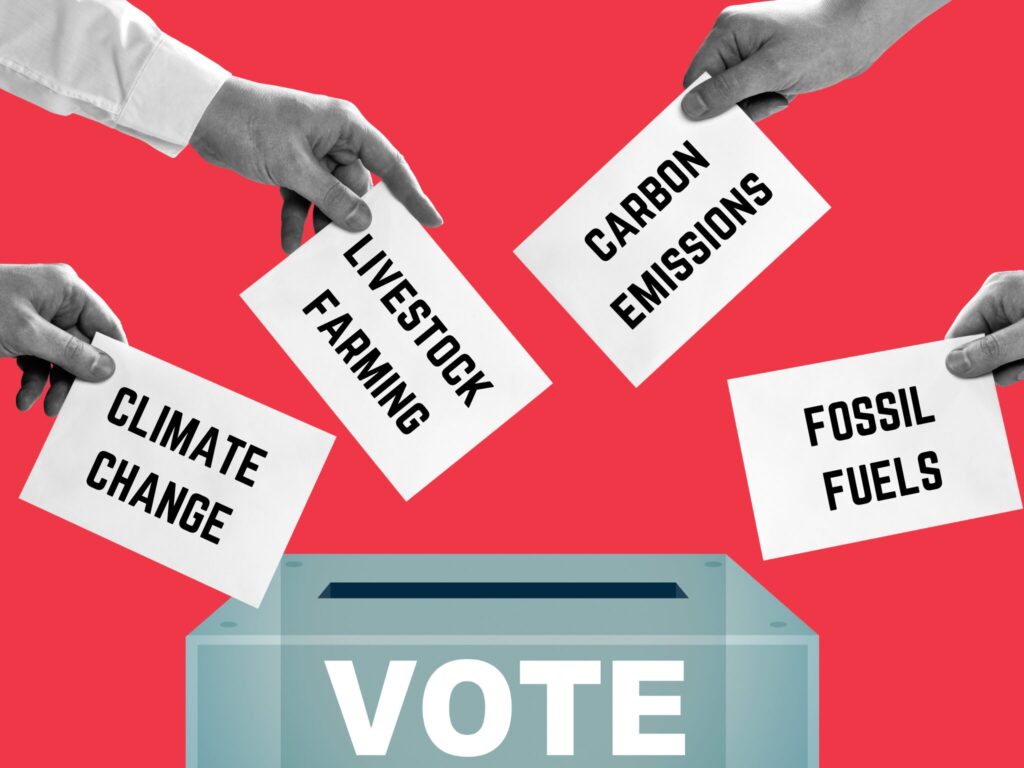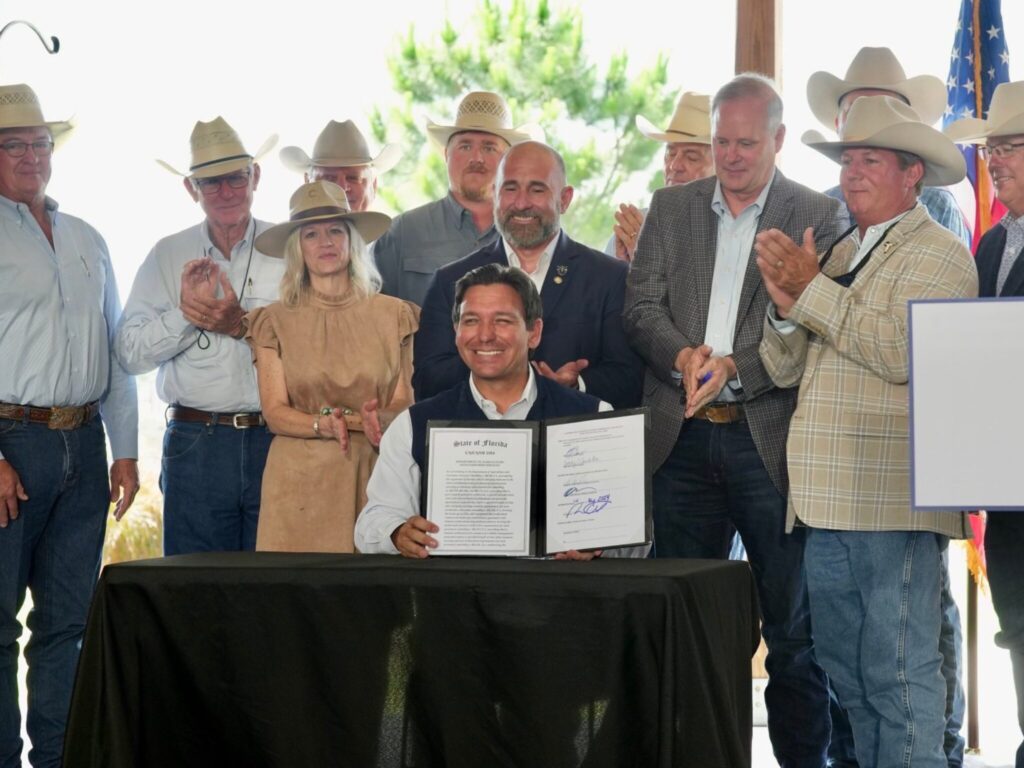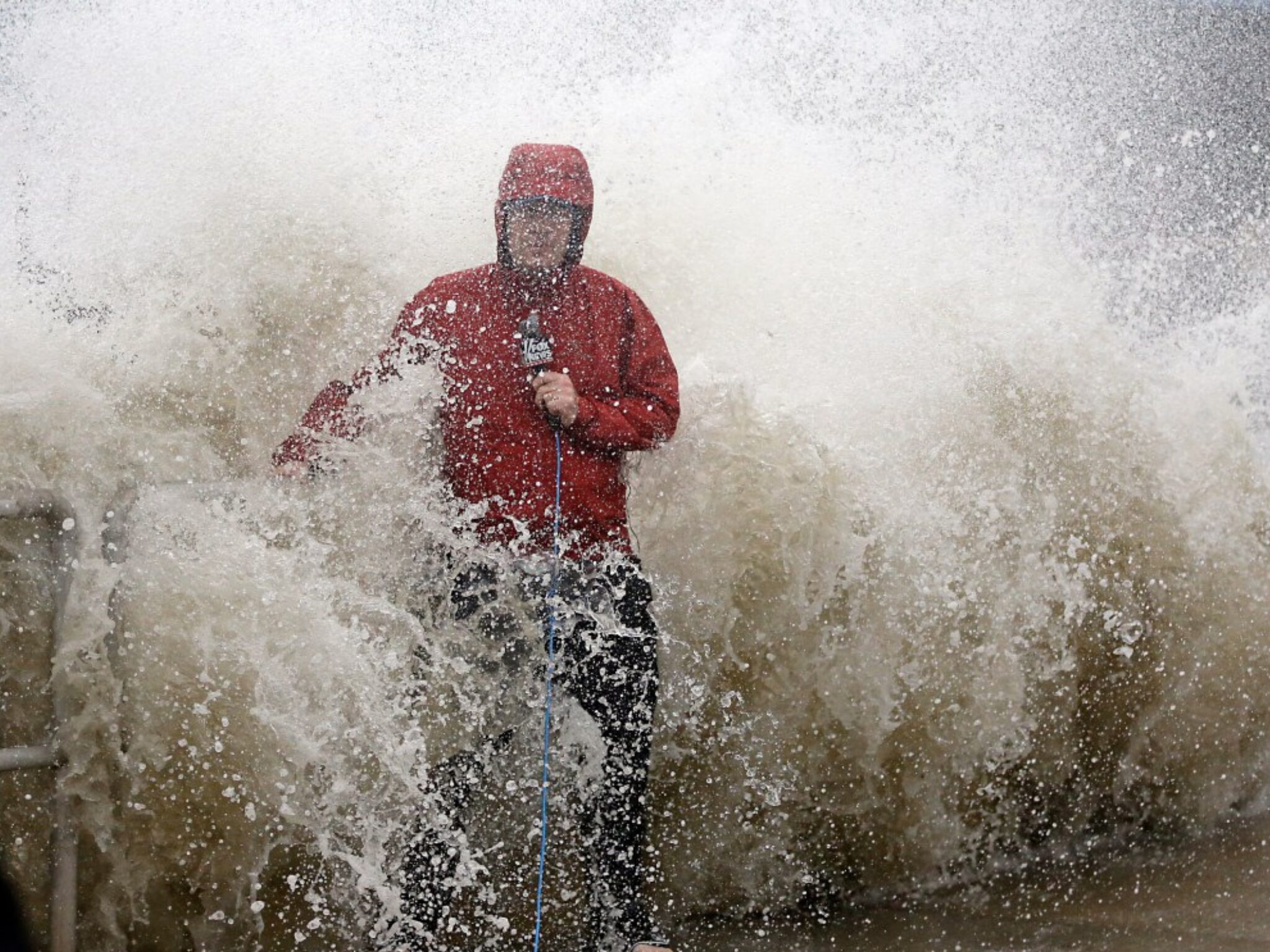This World Press Freedom Day, Climate Journalism is More Important Than Ever
7 Mins Read
As climate change wreaks havoc in a year when half the world will vote, the importance of environmental journalism and a free press cannot be understated.
“2024 should be the year of the climate election.” That proclamation by Mark Hertsgaard and Kyle Pope, founders of the global journalism collaboration Covering Climate Now, has stuck with me since it was published three months ago.
This year, people in eight of the 10 most populated countries – India, the US, Indonesia, Pakistan, Brazil, Bangladesh, Russia and Mexico – have cast or will cast their vote in a national election. When you include the 56 other countries in the mix, as well as the EU, that’s just under half (49%) of the world’s population.
Meanwhile, 44% of the world – 3.6 billion people – already live in areas highly susceptible to climate change. Last year was the hottest ever, and the way things are going, that record will be tumbling again every single year. Misinformation about and around global heating – concerning its effects on communities, the fossil fuel industry’s long-reaching arms, and the expert lobbying by the meat and dairy industry – is rampant, and environmental journalism is facing a reckoning.
You only need to look at the murder of Dom Phillips, who was killed for protecting the Amazon and its inhabitants from crime two years ago. According to the Committee to Protect Journalists, as many as 30 climate journalists have been killed for their work since 2009 – and that’s without accounting for the thousands of environmental activists who have been murdered in that time.

Since 2020, the UN says more than 200 journalists have lost their lives just for doing their jobs in the field. And last year alone, 339 writers were jailed in 33 countries – a new record. In the age of polarisation, it seems, truth is sedition. As press freedom goes, there may not have been worse times to be a journalist in the last century.
This is why on this World Press Freedom Day (May 3), UNESCO is honouring climate reporters who are uncovering the truth about illegal deforestation, water pollution, climate change displacement, floods, and so much more, noting that their dedication is the catalyst for the societal change underlined in the Sustainable Development Goals for 2030.
“Environmental journalists are on the frontlines of the triple planetary crisis. And it has never been more important to access reliable, fact-checked information” says Andrew Raine, deputy director of the UNEP Law Division. “As we see the climate crisis worsening and more pressure being put on land and resources, we may see an even harsher clampdown on environmental journalists.”
Where’s the money for climate journalism?
Today, UNESCO and the government of Chile begin a three-day conference in Santiago, convening leading investigative journalists, reporters, photojournalists, press freedom and legal experts, policymakers and international organisations for plenary sessions, breakout discussions and other events, including the ceremony for the UNESCO/Guillermo Cano World Press Freedom Prize. It honours the contributions of journalists, especially those who risk their lives to give people essential information.
On the 31st edition of the World Press Freedom Day, the focus is deeply on the importance of journalism and freedom of expression in a world mired in the climate crisis. UNESCO argues that the press plays a critical role in disseminating information to ensure a sustainable future, by highlighting climate change’s impact on communities and the misinformation surrounding it.
And good on UNESCO to spotlight climate journalism, which for so long has been underfunded and under-recognised. You can see that in the way the press has covered the 2024 election cycles – the environment is often a footnote, an afterthought, if at all even there.

“And when the climate crisis does come up, it’s often framed as a simplistic, either-or question that implies that the science remains unsettled: do you, or don’t you, believe man-made climate change is real?” wrote Hertsgaard and Pope. “That question was settled long ago; the scientific consensus around the climate crisis is approaching the consensus around gravity.”
Jill Hopke, an environmental journalism professor at DePaul University in Chicago, has advocated for greater investment in climate literacy training. She noted how news outlets that don’t have specialised climate reporters on staff make the connection between heat extremes and climate change less often than those who do. To illustrate her point, she points to how articles about heatwaves during summer 2018 by climate-specialist media houses discussed climate change 41% of the time, versus just 17% for mainstream outlets.
News outlets would be wise to follow the lead of the Associated Press, which in 2020 assigned over two dozen specialist journalists to cover the changing climate, with a grant of $8M.
Grants like these have helped. The Fund for Environmental Journalism has allocated over $104,000 in grants since 2010, for example, and the Laudes Foundation and the European Climate Foundation, which have issued a combined grant of £1.25M for the Oxford Climate Journalism Network. But more money needs to be pumped into climate reporting to allow journalists to provide people with all the information they need to be informed enough to vote.
Covering food is essential in a meat-hungry world
Last year, investigative reporters from the Guardian, DeSmog and IRPI published extensive coverage of the EU’s U-turn on its proposed caged farming ban, thanks to pressure from industry lobby groups. The Guardian also reported on the meat and dairy lobby’s successful attempts to water down the UN Food and Agricultural Organization’s calculations of livestock emissions. Wired, meanwhile, has uncovered the beef industry’s efforts to positively influence teachers and kids via school curriculum.
All these are examples of climate journalism. But even within media stories that mention the climate, 93% miss out on the industry that is responsible for up to a fifth of all emissions: animal agriculture. Largely, food is barely present in a lot of our climate conversations, despite it making up a third of all human-caused emissions.
Yes, phasing out fossil fuels is absolutely critical to shrinking our environmental footprint, but if we ignore the food system, we’ll never meet our climate goals – even if we somehow curtail all emissions from non-food sectors (energy and industry), food alone will take up the 1.5°C carbon budget by the end of the century. Heck, it will also surpass the 2°C threshold.
And while many journalists have covered the harmful practices of industrial livestock farming, in the era of beef apologists and dairy sympathisers, their work has largely fallen on deaf ears. It’s why plant-based meat companies like THIS, Beyond Meat and Impossible Foods have been forced to pivot away from environmental messaging and hone in on health to sell more – the latter’s CEO even said this week that he’s “not leading with the planet because not enough people care”. It’s also why famous vegetarians of 40 years like Martin Freeman are turning back to meat, concerned about ultra-processing and unconcerned about industrial farming.

And just this week, Florida governor Ron DeSantis signed into law a bill that would ban something the state has never even seen: cultivated meat. He and his colleagues have made no secret of the fact that this is their way of protecting the state’s beef industry – beef, by the way, is the most polluting food on the planet.
DeSantis was a candidate for US president until earlier this year. But the guy who beat him to it is – evidently – much worse for the climate. Donald Trump has promised to be a dictator on his first day back if elected, and that’s the opposite of what the White House needs. Educating and informing the public about the climate hell people like him will bring upon us is exactly why we need to protect climate journalism and the free press more than ever before.
His rival for November, the current president, alluded to Trump’s promise in his speech at the White House Correspondents’ dinner last week, where press freedom was a notable feature – no wonder Trump didn’t attend one of these during his presidency.
“There are some who call you the ‘enemy of the people’. That’s wrong, and it’s dangerous. You literally risk your lives doing your job. You do,” Biden told the White House press corps, followed by a nod to environmental journalism. “Covering everything from natural disasters to pandemics to wars and so much more. And some of your colleagues have given their lives, and many have suffered grievous injuries. Other reporters have lost their freedom.”
He continued: “Journalism is clearly not a crime. Not here, not there, not anywhere in the world.”
Press freedom is crucial. Climate journalism is crucial. Let’s protect it.
Green Queen Media is a member of Covering Climate Now.




